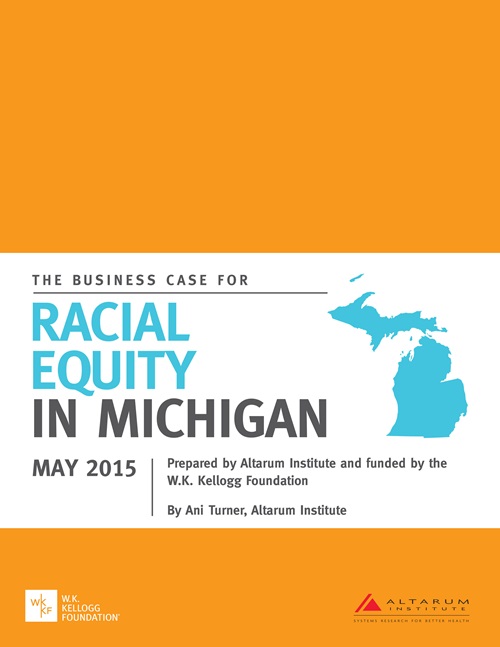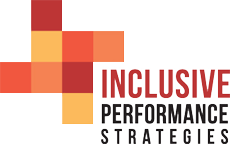
11 Jun The Racial Equity in Michigan Report
Racial equity isn’t just good for society; it makes good business sense, too. Last week, the Alturam Institute, funded by the W.K. Kellogg Foundation, released a compelling case for racial equity in the marketplace (May 2015).
Equity is when everyone “regardless of their race/ethnicity, nativity, neighborhood of residence, or other characteristics are fully able to 1) participate in the community’s economic vitality, 2) contribute to its readiness for the future, and 3) connect to its assets and resources.”[i]
Rapidly shifting population demographics make racial equity a pressing issue and opportunity for our communities. In Michigan, for example, 24% of the 9.9 million people are of color. By 2040, Michigan’s population will be 31% people of color, and nearly 40% will be children of color.[ii]
In the report, author Ani Turner argues that Michigan can leverage the power of its historically strong manufacturing assets, proximity to Canada, and export-oriented economy through a high-quality workforce. Racial equity is a vital component of developing that workforce. “With greater racial equity, disparities in health, educational achievement, incarceration rates, and employment opportunities diminish, improving life outcomes and building a healthier, more productive workforce whose skills better align with future needs.”[iii]
This means healthier workers representing lower insurance costs for employers as well as higher productivity. A more educated workforce is also an asset in an increasingly knowledge-based economy. And a diverse workforce positions you better in our global economy.
Racial equity is a means to unlocking a massive asset and competitive edge. It reduces the cost to Michigan citizens, employers, and government, of $2.03 billion in excess medical costs, and another $1.67 billion in lost productivity.[iv]
Traditional employment practices and policies have not developed the strong, diverse workforce most businesses desire. Inclusive Performance Strategies is ready to partner with you to harness your business’ potential through the power of inclusive strategies and policies. Our best practices will help you gain a competitive edge in today’s changing global market through understanding how your mission can be linked to promoting a more diverse and inclusive workforce.
If business leaders work together towards these goals, the state as a whole will experience a surge in economic vitality and growth. It takes a multi-faceted approach towards business, health, education and government, to name a few, to make strides towards racial equity in Michigan. Consider joining us in this work.
[i] The Business Case for Racial Equity in Michigan pg. 1
[ii] The Business Case for Racial Equity in Michigan pg. 1
[iii] The Business Case for Racial Equity in Michigan pg. 2
[iv] Altarum Institute, The business case for racial equity in Michigan. May 2015


Sorry, the comment form is closed at this time.